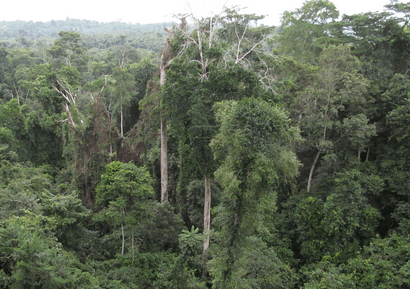Communities urged to be steadfast in the management of forests
 Mr John Naada, the Upper East Regional Manager of the Wildlife Division of the Forestry Commission, has advised local communities to be steadfast in the management of natural resources within their jurisdiction to prevent their destruction.
Mr John Naada, the Upper East Regional Manager of the Wildlife Division of the Forestry Commission, has advised local communities to be steadfast in the management of natural resources within their jurisdiction to prevent their destruction.
He said the spiteful destruction caused by human activities to the environment was alarming and required collective efforts to manage.
Mr Naada said this in an interview with the Ghana News Agency in Bolgatanga adding that bush burning, illegal felling of trees and mining among other things were having a serious toll on the environment.
“Destruction of the environment is not good for us, especially as it causes pollution of our water bodies, increasing temperatures and reducing rainfall patterns as a result,” he said.
Mr Naada said communities that were felling and trading in the logs were doing great disservice to themselves and the generations unborn.
He said the Forestry Commission in the Region was understaffed making it difficult for it to cover and monitor large forest areas to give adequate protection adding that the Commission relied on community members and traditional authorities to protect the forests.
Mr Naada, however, noted that the introduction of Community Resource Management Areas (CREMAs) in the Region aimed at involving communities including kassena-Nankana, Builsa North and South districts to take control of their own natural resources has been embraced well.
He said the ongoing sensitisation in communities was receiving much attention, especially in the conservation of the environment and expressed the hope that it would be sustained.
Mr Naada urged the district and municipal assemblies in the Region to increase their role in the management of those resources by instituting tree planting and protection activities to safeguard the environment.
He said women in areas where CREMAs were established had been supported with income generation activities such as shea-butter processing to earn income.
This, he said, would redirect attention of communities, especially women, from over dependence on trees for fuel.
Source: GNA
